Introducing the board-certified vein specialist in Paramus, New Jersey
Dr. Sareh Rajaee is one of the leading board-certified vein specialists in Paramus, New Jersey. She’s the leading vein doctor at our state-of-the-art vein clinic in New Jersey, which is conveniently located at 140 NJ-17 #103, Paramus, just off garden state parkway and a short drive from Paramus Park Mall. You can find our vein specialist in Paramus at her vein clinic — you may book an appointment online or call +1 201-485-5020.
Dr. Rajaee is a board-certified vein doctor — she’s certified by the American Board of Venous and Lymphatic Medicine, an organization that officially certifies the country’s top 1% of vein doctors. Her board-certified status indicates she has completed advanced educational degrees, including residencies and fellowships, in vein care. She also has specialized training in the latest, minimally invasive treatments for spider veins, varicose veins, and vein disease.

Dr. Rajaee has a stellar educational background, having trained at the country’s leading medical institutions. She obtained her medical doctorate from the Alpert Medical School at Brown University, a Master’s in Public Health at the Harvard School of Public Health, and an integrated. She also completed a fellowship in open and endovascular procedures for venous disease and peripheral arterial disease.
Dr. Rajaee believes, like most of our vein doctors, that the lack of awareness about vein care prevents patients from seeking timely care. Most patients have misconceptions about spider veins, varicose veins, and vein treatments that prevent them from taking action early, leading to advanced complications of vein disease. Below, we answer some of the most common questions about vein care to spread awareness about vein disease.
What are spider veins and varicose veins?
Spider veins are dense clusters of damaged blood vessels visible just underneath the skin’s surface. Varicose veins are large, dilated blood vessels that protrude out of the skin’s surface, looking like a mass of twisted, tangled, and knotted ropes. Spider veins and varicose veins are essentially dilated, damaged blood vessels with accumulated blood.
What causes spider veins and varicose veins?
Chronic venous insufficiency is the primary root cause of spider veins and varicose veins. Venous insufficiency is a circulatory disorder wherein your vein valves collapse. In healthy veins, the vein valves function as one-way doors that ensure smooth, one-way blood circulation to the heart against the force of gravity. When your vein valves collapse, blood flows backward due to gravity, eventually accumulating in the leg veins. The continued accumulation of blood in leg veins leads to vascular dilation and the eventual formation of spider veins, varicose veins, and other vein problems.
What are the signs and symptoms of vein disease?
Chronic venous insufficiency gradually worsens with time, but its initial signs and symptoms are hard to identify. Most patients misattribute the early signs and symptoms of vein disease to signs of aging. At the earliest stage, vein disease leads to leg heaviness, restless leg syndrome, frequent leg cramps, and leg swelling, and the symptoms gradually worsen at the end of the day or after long periods of sitting or standing still. If you notice these signs and symptoms of vein disease, you must consult a reliable vein specialist in Paramus.
If left untreated, the symptoms of vein disease continue worsening. The continued accumulation of blood in leg veins will lead to varicose veins, and the vein walls will continue dilating and expanding, eventually leading to burst varicose veins and profuse bleeding. Other long-term complications of vein disease include skin discoloration because of insufficient blood circulation in the legs, skin disease, non-healing wounds known as leg ulcers, and blood clots in the leg veins, known as deep vein thrombosis. As such, you must seek vein treatment at the earliest stage possible.
How to prevent spider and varicose veins?
Spider and varicose veins may occur because of a wide range of reasons, such as genetic predisposition, a history of vein problems, obesity, pregnancy, a sedentary lifestyle that involves long periods of sitting or standing still, or a sedentary desk job. Because of the numerous risk factors for vein disease, there are no definitive means of preventing spider and varicose veins. However, if you have a high risk of vein disease, you can implement some lifestyle changes to improve your blood circulation in general, thus minimizing the risk of chronic venous insufficiency.
The following tips can help you prevent or minimize the risk of spider and varicose veins:
- Wear compression stockings to improve blood circulation
- Engage in cardiovascular exercises that work your calf muscles and increase blood flow — running, swimming, cycling, walking, and yoga
- Elevate your legs above your heart’s level while sitting to improve blood flow to the heart
- If you have a desk job, stand up and walk around every couple of minutes
What are the latest treatments for spider veins and varicose veins?
Radiofrequency ablation, endovenous laser ablation, venaseal, sclerotherapy, and ambulatory phlebectomy are some of the latest, safest, minimally invasive treatments for vein disease. These procedures involve small incisions or injections to destroy or seal the diseased saphenous vein’s walls, following which the superficial varicose veins and spider veins are removed. Minimally invasive vein treatments are safe, in-office procedures that conclude within an hour with no downtime, allowing you to resume your daily activities and work immediately.
What’s the recovery process after minimally invasive spider vein and varicose vein treatments?
Minimally invasive spider vein and varicose vein treatments don’t involve downtime or recovery. You have to wear ACE bandages and compression stockings for a few days or weeks, and some treatments necessitate avoiding strenuous workouts for a few days, but you can resume most of your daily activities immediately.

